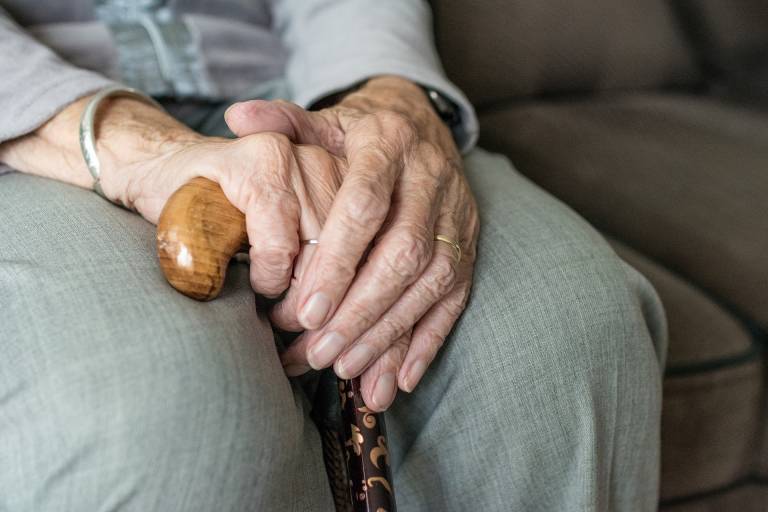Daily activities more problematic for women than men in old age
1 December 2021
Women are more likely than men to struggle with both regular daily tasks and mobility activities as they age, according to new analysis of longitudinal cohort studies led by researchers at UCL, including Mikaela Bloomberg (UCL Epidemiology & Public Health).

However, the researchers say disparities in ability to perform daily tasks have been steadily decreasing as the socioeconomic gap between the sexes has decreased.
The international study, published in The Lancet Healthy Longevity, uses data from more than 27,000 men and 34,000 women aged 50 to 100 years, born between 1895 and 1960, to examine sex differences in daily activity and mobility limitations. The information was obtained from four large longitudinal studies, covering 14 countries*.
Overall, the researchers found that women were more likely than men to be limited in their ‘functional capacity’ (both tasks and mobility) as they get older. From age 75, women were also more likely to have three or more mobility issues (e.g. going up a flight of stairs, lifting grocery shopping, or reaching/extending the arms) or limitations with more complex daily tasks (e.g. managing money, using the telephone, taking medication, or making meals) compared to men who were more likely to have just one or two. For example, at age 85 years, the prevalence of 3 or more mobility limitations was 10% higher in women than in men.
Lead author, Mikaela Bloomberg (PhD Candidate, UCL Epidemiology and Public Health) explained: “Our study of over 60,000 participants born between 1895 and 1960 provides new insights on functional limitations and sex differences.
“We found that women are more likely to be limited than men in carrying out daily tasks from age 70, while we observed women were more likely to be limited in mobility activities from age 50 onward.
“This is an important observation because mobility limitations can precede other more severe limitations and targeting these gaps at middle age could be one way to reduce sex differences in limitations at older ages.”
The authors discuss how historical differences between men and women in socioeconomic factors such as education and entrance to the labour force may in part explain these differences as low education and domestic and unpaid labour disproportionately expose women to health risks that can lead to disability.
“It appears that gender inequalities in the ability to carry out daily tasks at older age are decreasing over time and this could be explained by the fact that women have better access to education and are more likely to enter the paid labour force in recent generations,” said Bloomberg.
“And although reductions in socioeconomic inequalities may be associated with smaller disparities in simple daily tasks, we did not see the same reductions in sex disparities for mobility after accounting for socioeconomic factors. This might be partly due to sex differences in body composition such as body mass and skeletal muscle index but more research is needed to identify other factors.”
The authors say findings are significant for policy makers looking to help reduce the inequality gap, highlighting the importance of gender equity in education and employment for health outcomes in old age but noted some limitations to the data including lack of clinical data on chronic conditions.
Co-author Dr Séverine Sabia (UCL Epidemiology and Public Health and INSERM) added: "Developing targeted prevention policies to preserve independent living and quality of life for older adults requires an understanding of drivers of sex differences in functional limitations.
“Our study indicates improvements in socioeconomic conditions for women could play an important role in reducing these sex differences. Findings also highlight the importance of early prevention to tackle sex differences in mobility that may trigger sex differences in disability at older age."
Funding for the study was provided by the National Institute on Aging, UK National Institute for Health Research, European Commission, and the US Social Security Administration.
Links
Image
- Credit: Pixabay Sabinevanerp CC 2.0
Media contact
Rowan Walker
Tel: +44 (0)20 3108 8515
Email: rowan.walker [at] ucl.ac.uk
Read: Mail Online, More: Guardian, UCL News, Evening Standard, Wales Online
 Close
Close

